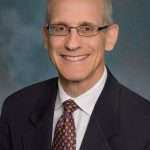Promises, Promises: Supreme Court Eases Up on Making Fraud Claims
Franchise Litigation Attorney
David Gurnick
818.907.3285
Overruling an 84 year old precedent, the California Supreme Court made it easier to claim a contract was brought about by fraud. Generally, when parties put their full agreement in writing, the law prohibits them from claiming an outside promise or assurance that differs from what the writing says.
For example, say a promissory note promises repayment in three years; but to get a reluctant lender to lend, the borrower orally promises to repay the loan in one year. Later the lender may seek to rescind the loan and cancel agreement, claiming to have been misled by the borrower’s false oral statement. In countless situations, contracting parties claim they were promised or assured something that differs from what their written agreement says.
Under old law, the lender’s claim would not be allowed. This is because an oral promise of repayment in one year, directly conflicts with the written agreement’s statement that repayment is due in three years. The law calls this the Parol Evidence Rule.
In a recent decision, the Supreme Court said it is fundamental that fraud undermines the validity of any agreement. The Court added that the Parol Evidence Rule should not be used to facilitate fraud. The court ruled a party may claim that a contract was induced by fraud, even if the inducement was an oral statement that differs from the agreement’s written terms.
The Court also gave a warning. Proving fraud “requires a showing of justifiable reliance” on the claimed misrepresentation.
If a written agreement says one thing, but a person claims something else was promised orally, there will be questions how the complaining party could rely on the oral statement. Reading the agreement would have revealed the conflict. If the party did not read the agreement, their reliance was not justified. “Negligent failure to acquaint oneself with the contents of a written agreement precludes a finding that a contract is void for fraud,” the Court noted.
The Parol Evidence Rule is still in effect. It still prevents a party from claiming an oral promise makes the parties’ agreement different from what the writing says. By allowing a claim for fraud, the Court’s decision partly changed a long-established California rule. With regard to overruling an 84 year old precedent, the Supreme Court quoted revered Justice Felix Frankfurter, that “wisdom too often never comes, and so one ought not to reject it merely because it comes late.”
The decision is Riverland Cold Storage, Inc. v. Fresno-Madera Production Credit Association 2013 Daily Journal D.A.R. 561 (Jan. 14, 2013). Look for a lot more discussion about this case in legal news.
David Gurnick is a Business and Litigation Attorney, a Certified Specialist in Franchise and Distribution Law (State Bar of California Board of Legal Specialization), and the author of two legal treatises. You may reach him via email for more information.
